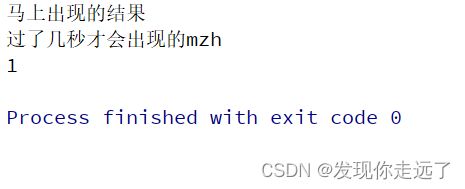defi_sort(arr):#从第二个元素开始遍历整个数组foriinrange(1,len(arr)):key=arr[i]#当前要插入的元素j=i-1#指向当前元素的前一个元素#将大于key的元素都向右移动一位whilej>=0andkey
python 创建子图_在python中以绘图方式创建子图
weixin_39899691
python创建子图
Iamfairlynewtopythonandploty(<3monthsofactualcodingatthispoint).Iamtryingtocreatesubplotsinplotly.Ihavecreatedgraphsinplotlyusingthecodebelow(codesnippetsattachedbelowaswell),butIcan'tseemtogetthemtow
pythonsubplot_python matplotlib中的subplot函数使用详解
郝志鹄
pythonsubplot
python里面的matplotlib.pylot是大家比较常用的,功能也还不错的一个包。基本框架比较简单,但是做一个功能完善且比较好看整洁的图,免不了要网上查找一些函数。于是,为了节省时间,可以一劳永逸。我把常用函数作了一个总结,最后写了一个例子,以后基本不用怎么改了。一、作图流程:1.准备数据,,3作图,4定制,5保存,6显示1.数据可以是numpy数组,也可以是list2创建画布:impor
python 替换字符串
Aa123456789_55
pandaspython数据库开发语言
在Python中,替换字符串可以通过多种方式实现,具体取决于您的需求和上下文。以下是几种常见的方法:1.使用str.replace()方法str.replace(old,new[,count])是最常用的字符串替换方法。它会将字符串中的所有匹配项替换为新的字符串。old:要被替换的子字符串。new:用来替换的新字符串。count(可选):替换的最大次数。如果未指定,则替换所有匹配项。示例代码:or
python数据可视化玩转Matplotlib subplot子图操作,四个子图(一包四),三个子图,子图拉伸_python subplot
2401_83817843
程序员python信息可视化matplotlib
大锤爱编程的博客_CSDN博客-大数据,Go,数据分析领域博主Matplotlib是一个流行的Python可视化库,它提供了许多功能来创建各种类型的图表。其中一个功能是子图,它允许您在单个图表中绘制多个图。一、创建子图要创建子图,请使用plt.subplots()函数。该函数接受三个参数:行数、列数和子图编号。以下是一个简单的示例:importmatplotlib.pyplotaspltfig,a
python subplot函数应用 - 创建多个子图
Aa123456789_55
图形展示代码学习python开发语言
subplot语法:plt.subplot是Matplotlib库中的一个非常有用的函数,用于在一个图形窗口中创建多个子图plt.subplot函数用于在当前图形窗口中创建并激活一个子图。其基本语法如下:plt.subplot(nrows,ncols,index)参数详解:nrows:子图的行数。这是指整个图形窗口将被分成多少行子图。ncols:子图的列数。这是指整个图形窗口将被分成多少列表子图。
图像分割基础:使用Python和scikit-image库
0dayNu1L
机器学习项目实战python人工智能机器学习
大家好,今天我们将一起探讨图像分割的基础知识,并使用Python编程语言以及scikit-image库来实现一个简单的图像分割示例。图像分割是图像处理中的一项重要技术,它允许我们将图像划分为多个部分或对象,这对于图像分析和计算机视觉任务至关重要。0dayNu1L-CSDN博客目录一、环境准备二、图像分割示例1.导入必要的库2.读取并显示图像3.创建标签数组并进行阈值分割4.使用颜色表示标签三、结果
pythoneasyinstall安装第三方库_【Python使用】Python安装第三方包(easy_install和pip工具)...
不死鹰阿江
本文是对python的第三方包/模块的安装的说明,官方下载第三方包的地址为:https://pypi.org/。1.工具安装部署1.1setuptools安装部署(easy_install)easy_install是由PEAK(PythonEnterpriseApplicationKit)开发的setuptools包里带的一个命令,它用来自动地从http://pypi.python.org/sim
Python库 - skimage
司南锤
PYTHON库python开发语言
skimage是scikit-image的缩写,是一个用于图像处理的Python库。提供了丰富的图像处理功能,包括图像滤波、边缘检测、形态学操作、特征提取、图像分割等。skimage是基于NumPy数组构建的,因此可以与NumPy和其他科学计算库(如scipy和matplotlib)无缝集成。安装可以使用pip来安装skimage:pipinstallscikit-image主要模块skimage
scikit-image(Scikit-image 是用于图像处理的 Python 包,使用原生的 NumPy 数组作为图像对象)
Clark-dj
图像处理pythonnumpy
Scikitimage中文开发手册-开发者手册-腾讯云开发者社区-腾讯云昨天搜索一个函数时无意间发现这个网站,今天来学习一下,仅作学习笔记。measureskimage.measure.approximate_polygon(coords,...)近似具有指定公差的多边形链。skimage.measure.block_reduce(image,block_size)通过对局部块应用函数来下采样图像
线程池相关面试题
玛丽莲萌
java
一、什么是线程池?线程池是用来管理和复用线程的工具,他可以减少线程的创建和销毁开销。在java中,ThreadPoolExecutor是线程池的核心实现,它通过核心线程数、最大线程数、任务队列和拒绝策略来控制线程的创建和执行。举个例子:就像你开了一家餐厅,线程池就相当于固定数量的服务员,顾客(任务)来了就安排空闲的服务员(线程)处理,避免了频繁招人和解雇的成本。二、线程池的工作原理任务提交----
python`print`函数中flush参数
需要重新演唱
Pythonpython
print函数中flush参数在计算机中,输出通常会被缓冲,这意味着数据不会立即发送到目标位置(如控制台或文件),而是先存储在内存中的一个缓冲区里。这样做的好处是可以提高性能,因为一次性发送大量数据通常比逐个发送数据更高效。然而,在某些情况下,你可能希望立即看到输出,而不是等待缓冲区填满或程序结束。这时就可以使用flush参数来强制刷新缓冲区。flush参数的作用flush参数是一个布尔值,默认是
python的print函数中file_【Python-1】初解print函数
weixin_39849762
print(*objects,sep='',end='\n',file=sys.stdout,flush=False)Printobjectstothetextstreamfile,separatedbysepandfollowedbyend.sep,end,fileandflush,ifpresent,mustbegivenaskeywordarguments.print函数可将对象以字符串的形
Linux内核--进程管理(十一)多核下的负载均衡
文艺小少年
CPU性能分析与操作系统的构建linux负载均衡运维
目录一、引言二、调度机制介绍------>2.1、线程的多核运行------>2.2、RT进程多核负载均衡------>2.3、普通进程多核负载均衡------>2.4、设置CPUtaskaffinity三、中断负载均衡、RPS软中断负载均衡四、linux非实时系统------>4.1、优化措施一、引言本文延续前一章的内容,介绍调度器的其他内容:关于多核、分群、硬实时二、多核下的负载均衡tips:
python之tkinter库的frame组件
谷晓光
python
frame作用就是为了布局,将一组组件作为一个整体放在一个frame中,也方便对这一组组件进行控制。frame组件作为其他组件的框架,将布局分为一个个单独的空间,配合其他布局函数以实现复杂的界面布局。语法:Frame(父对象,参数列表,……)Frame(master=none,**options)(class)参数:参数名称属性举例或备注background或bg组件背景颜色borderwidth
Python, Java 开发鱼类养殖大全APP
Geeker-2025
pythonjava
开发一个“鱼类养殖大全APP”是一个非常有意义的项目,特别是对于水产养殖从业者、鱼类爱好者和研究人员来说。该APP可以帮助用户了解鱼类的养殖知识、疾病防治、饲料管理、水质监测等内容,并提供个性化的养殖建议。以下是开发该APP的详细思路和技术实现方案,分别针对Python和Java。---###**功能需求分析**1.**鱼类信息展示**:-提供常见鱼类的基本信息(如名称、图片、生活习性、适宜水温、
编程提示工程高级技巧:从入门到精通
SuperMale-zxq
AI编程——程序员的进阶之路javapythonc++AI编程人工智能
编程提示工程高级技巧:从入门到精通开篇:当代码与语言的边界变得模糊想象这样一个场景:一位开发者坐在电脑前,面对一个复杂的数据处理任务。传统做法是打开IDE,花几小时编写、调试和优化代码。但今天,他只是打开了AI编程助手,输入了这样一段文字:“创建一个Python函数,读取CSV文件中的销售数据,按季度汇总,并生成一个显示趋势的可交互图表。数据包含日期、产品ID、销售额和区域字段。”几秒钟后,屏幕上
Python(语句)
高育良00003
python开发语言
一.赋值语句将一个值赋给变量x=5#将5赋给变量xx1=x+6#计算x+6并将结果赋给x1二.条件语句条件语句用于根据不同的条件来执行不同的代码块。语法:if条件表达式1:需注意别漏掉:语句块1elif条件表达式2:语句块2...elif条件表达式n:语句块nelse:语句块(其他)三.循环语句用于重复执行一段代码,知道满足某条件3.1for循环遍历可迭代对象(列表,集合等都行)遍历:经历一遍可迭
一篇文章让你实现前端JS 、 Golang 、 Python如何接入DeepSeek大模型实现自己的AI
一只理智恩
AI前端后端pythongolangjavascript
本文将通过三种技术栈实现与DeepSeek大模型的对话交互,提供可直接运行的代码示例及详细注释。一、通用准备步骤1.获取API密钥登录DeepSeek开发者平台创建应用获取DEEPSEEK_API_KEY2.创建测试环境#项目结构deepseek-demo/├──frontend/#前端代码│└──index.html├──go-backend/#Golang后端│└──main.go├──py-
python+MySQL+HTML实现自习室座位管理系统
IT小本本
pythonpythonmysqlhtml
自习室座位管理系统项目介绍自习室座位管理系统是一个基于PythonFlask框架开发的Web应用,旨在提供高效、便捷的自习室座位预约和管理功能。该系统适用于学校图书馆、自习室等场所,帮助管理员有效管理座位资源,同时为学生提供便捷的座位预约服务。功能特点1、用户认证模块用户注册:学生可以注册账号,填写个人信息用户登录:支持学生和管理员登录找回密码:通过邮箱验证重置密码2、座位管理模块座位预约:学生可
Python物联网与传感器数据分析
master_chenchengg
pythonpython办公效率python开发IT
Python物联网与传感器数据分析开场白:连接物理世界与数字宇宙物联网的魅力:让物体开口说话Python:编织万物互联的魔法传感器:感知世界的触角数据捕获:从现实世界到数字领域传感器类型概览:温度、湿度、光照及其他Python与硬件接口:树莓派的奇妙旅程实时数据流:如何捕捉每一刻的变化数据处理:挖掘数字宝藏的秘密数据清洗:让数据焕发光彩数据分析:揭秘模式与趋势异常检测:识别噪声与干扰可视化展示:讲
9种Python数据可视化方案,让财务数据焕发生命力
IT小本本
python信息可视化数据分析数据挖掘
想象一下:你即将向董事会展示季度财务报告,面对的是一群已经看过无数PPT的高管。你是选择用普通的柱状图和折线图,还是用能够直观展示收入、支出、利润动态关系的交互式仪表板?本文将通过一个完整的Python财务数据可视化案例,展示如何将枯燥的财务数据转变为直观、动态且富有洞察力的可视化作品。场景:财务分析的可视化挑战李总是一家快速成长的科技公司CFO,每月需要向董事会汇报公司的财务状况。尽管他精通Ex
Pytorch 小记 第八回:GoogleNet卷积神经网络模型代码
Start_Present
pytorchcnn神经网络分类python深度学习
本次小记,提供了一份基于pytorch的GoogleNet卷积神经网络模型的代码。除此之外,对代码中不容易理解的部分进行了讲解。本代码的平台是PyCharm2024.1.3,python版本3.11numpy版本是1.26.4,pytorch版本2.0.0+cu118,d2l的版本是1.0.3importnumpyasnpimporttorchfromtorchimportnnfromtorchv
python编程基础与案例集锦,python编程案例教程答案
青峰235
python开发语言信息可视化
大家好,小编来为大家解答以下问题,python编程案例教程航空工业出版社课后答案,python编程案例教程答案航空工业出版社,现在让我们一起来看看吧!1.整理字符串输入整理用户输入的问题在编程过程中极为常见。通常情况下,将字符转换为小写或大写就够了,有时你可以使用正则表达式模块「Regex」完成这项工作python编程代码画樱花。但是如果问题很复杂,可能有更好的方法来解决:user_input="
python列表排序方法从大到小,python列表排序sorted
青峰235
windowspythonlinux人工智能
本篇文章给大家谈谈python列表排序的方法有几种,以及python列表排序方法从大到小,希望对各位有所帮助,不要忘了收藏本站喔。Pythonlist内置sort()方法用来排序,也可以用python内置的全局sorted()方法来对可迭代的序列排序生成新的序列。1)排序基础简单的升序排序是非常容易的python引用turtle画蝴蝶。只需要调用sorted()方法。它返回一个新的list,新的l
继之前的线程循环加到窗口中运行
3213213333332132
javathreadJFrameJPanel
之前写了有关java线程的循环执行和结束,因为想制作成exe文件,想把执行的效果加到窗口上,所以就结合了JFrame和JPanel写了这个程序,这里直接贴出代码,在窗口上运行的效果下面有附图。
package thread;
import java.awt.Graphics;
import java.text.SimpleDateFormat;
import java.util
linux 常用命令
BlueSkator
linux命令
1.grep
相信这个命令可以说是大家最常用的命令之一了。尤其是查询生产环境的日志,这个命令绝对是必不可少的。
但之前总是习惯于使用 (grep -n 关键字 文件名 )查出关键字以及该关键字所在的行数,然后再用 (sed -n '100,200p' 文件名),去查出该关键字之后的日志内容。
但其实还有更简便的办法,就是用(grep -B n、-A n、-C n 关键
php heredoc原文档和nowdoc语法
dcj3sjt126com
PHPheredocnowdoc
<!doctype html>
<html lang="en">
<head>
<meta charset="utf-8">
<title>Current To-Do List</title>
</head>
<body>
<?
overflow的属性
周华华
JavaScript
<!DOCTYPE html PUBLIC "-//W3C//DTD XHTML 1.0 Transitional//EN" "http://www.w3.org/TR/xhtml1/DTD/xhtml1-transitional.dtd">
<html xmlns="http://www.w3.org/1999/xhtml&q
《我所了解的Java》——总体目录
g21121
java
准备用一年左右时间写一个系列的文章《我所了解的Java》,目录及内容会不断完善及调整。
在编写相关内容时难免出现笔误、代码无法执行、名词理解错误等,请大家及时指出,我会第一时间更正。
&n
[简单]docx4j常用方法小结
53873039oycg
docx
本代码基于docx4j-3.2.0,在office word 2007上测试通过。代码如下:
import java.io.File;
import java.io.FileInputStream;
import ja
Spring配置学习
云端月影
spring配置
首先来看一个标准的Spring配置文件 applicationContext.xml
<?xml version="1.0" encoding="UTF-8"?>
<beans xmlns="http://www.springframework.org/schema/beans"
xmlns:xsi=&q
Java新手入门的30个基本概念三
aijuans
java新手java 入门
17.Java中的每一个类都是从Object类扩展而来的。 18.object类中的equal和toString方法。 equal用于测试一个对象是否同另一个对象相等。 toString返回一个代表该对象的字符串,几乎每一个类都会重载该方法,以便返回当前状态的正确表示.(toString 方法是一个很重要的方法) 19.通用编程:任何类类型的所有值都可以同object类性的变量来代替。
《2008 IBM Rational 软件开发高峰论坛会议》小记
antonyup_2006
软件测试敏捷开发项目管理IBM活动
我一直想写些总结,用于交流和备忘,然都没提笔,今以一篇参加活动的感受小记开个头,呵呵!
其实参加《2008 IBM Rational 软件开发高峰论坛会议》是9月4号,那天刚好调休.但接着项目颇为忙,所以今天在中秋佳节的假期里整理了下.
参加这次活动是一个朋友给的一个邀请书,才知道有这样的一个活动,虽然现在项目暂时没用到IBM的解决方案,但觉的参与这样一个活动可以拓宽下视野和相关知识.
PL/SQL的过程编程,异常,声明变量,PL/SQL块
百合不是茶
PL/SQL的过程编程异常PL/SQL块声明变量
PL/SQL;
过程;
符号;
变量;
PL/SQL块;
输出;
异常;
PL/SQL 是过程语言(Procedural Language)与结构化查询语言(SQL)结合而成的编程语言PL/SQL 是对 SQL 的扩展,sql的执行时每次都要写操作
Mockito(三)--完整功能介绍
bijian1013
持续集成mockito单元测试
mockito官网:http://code.google.com/p/mockito/,打开documentation可以看到官方最新的文档资料。
一.使用mockito验证行为
//首先要import Mockito
import static org.mockito.Mockito.*;
//mo
精通Oracle10编程SQL(8)使用复合数据类型
bijian1013
oracle数据库plsql
/*
*使用复合数据类型
*/
--PL/SQL记录
--定义PL/SQL记录
--自定义PL/SQL记录
DECLARE
TYPE emp_record_type IS RECORD(
name emp.ename%TYPE,
salary emp.sal%TYPE,
dno emp.deptno%TYPE
);
emp_
【Linux常用命令一】grep命令
bit1129
Linux常用命令
grep命令格式
grep [option] pattern [file-list]
grep命令用于在指定的文件(一个或者多个,file-list)中查找包含模式串(pattern)的行,[option]用于控制grep命令的查找方式。
pattern可以是普通字符串,也可以是正则表达式,当查找的字符串包含正则表达式字符或者特
mybatis3入门学习笔记
白糖_
sqlibatisqqjdbc配置管理
MyBatis 的前身就是iBatis,是一个数据持久层(ORM)框架。 MyBatis 是支持普通 SQL 查询,存储过程和高级映射的优秀持久层框架。MyBatis对JDBC进行了一次很浅的封装。
以前也学过iBatis,因为MyBatis是iBatis的升级版本,最初以为改动应该不大,实际结果是MyBatis对配置文件进行了一些大的改动,使整个框架更加方便人性化。
Linux 命令神器:lsof 入门
ronin47
lsof
lsof是系统管理/安全的尤伯工具。我大多数时候用它来从系统获得与网络连接相关的信息,但那只是这个强大而又鲜为人知的应用的第一步。将这个工具称之为lsof真实名副其实,因为它是指“列出打开文件(lists openfiles)”。而有一点要切记,在Unix中一切(包括网络套接口)都是文件。
有趣的是,lsof也是有着最多
java实现两个大数相加,可能存在溢出。
bylijinnan
java实现
import java.math.BigInteger;
import java.util.regex.Matcher;
import java.util.regex.Pattern;
public class BigIntegerAddition {
/**
* 题目:java实现两个大数相加,可能存在溢出。
* 如123456789 + 987654321
Kettle学习资料分享,附大神用Kettle的一套流程完成对整个数据库迁移方法
Kai_Ge
Kettle
Kettle学习资料分享
Kettle 3.2 使用说明书
目录
概述..........................................................................................................................................7
1.Kettle 资源库管
[货币与金融]钢之炼金术士
comsci
金融
自古以来,都有一些人在从事炼金术的工作.........但是很少有成功的
那么随着人类在理论物理和工程物理上面取得的一些突破性进展......
炼金术这个古老
Toast原来也可以多样化
dai_lm
androidtoast
Style 1: 默认
Toast def = Toast.makeText(this, "default", Toast.LENGTH_SHORT);
def.show();
Style 2: 顶部显示
Toast top = Toast.makeText(this, "top", Toast.LENGTH_SHORT);
t
java数据计算的几种解决方法3
datamachine
javahadoopibatisr-languer
4、iBatis
简单敏捷因此强大的数据计算层。和Hibernate不同,它鼓励写SQL,所以学习成本最低。同时它用最小的代价实现了计算脚本和JAVA代码的解耦,只用20%的代价就实现了hibernate 80%的功能,没实现的20%是计算脚本和数据库的解耦。
复杂计算环境是它的弱项,比如:分布式计算、复杂计算、非数据
向网页中插入透明Flash的方法和技巧
dcj3sjt126com
htmlWebFlash
将
Flash 作品插入网页的时候,我们有时候会需要将它设为透明,有时候我们需要在Flash的背面插入一些漂亮的图片,搭配出漂亮的效果……下面我们介绍一些将Flash插入网页中的一些透明的设置技巧。
一、Swf透明、无坐标控制 首先教大家最简单的插入Flash的代码,透明,无坐标控制: 注意wmode="transparent"是控制Flash是否透明
ios UICollectionView的使用
dcj3sjt126com
UICollectionView的使用有两种方法,一种是继承UICollectionViewController,这个Controller会自带一个UICollectionView;另外一种是作为一个视图放在普通的UIViewController里面。
个人更喜欢第二种。下面采用第二种方式简单介绍一下UICollectionView的使用。
1.UIViewController实现委托,代码如
Eos平台java公共逻辑
蕃薯耀
Eos平台java公共逻辑Eos平台java公共逻辑
Eos平台java公共逻辑
>>>>>>>>>>>>>>>>>>>>>>>>>>>>>>>>>>>>>>>
蕃薯耀 2015年6月1日 17:20:4
SpringMVC4零配置--Web上下文配置【MvcConfig】
hanqunfeng
springmvc4
与SpringSecurity的配置类似,spring同样为我们提供了一个实现类WebMvcConfigurationSupport和一个注解@EnableWebMvc以帮助我们减少bean的声明。
applicationContext-MvcConfig.xml
<!-- 启用注解,并定义组件查找规则 ,mvc层只负责扫描@Controller -->
<
解决ie和其他浏览器poi下载excel文件名乱码
jackyrong
Excel
使用poi,做传统的excel导出,然后想在浏览器中,让用户选择另存为,保存用户下载的xls文件,这个时候,可能的是在ie下出现乱码(ie,9,10,11),但在firefox,chrome下没乱码,
因此必须综合判断,编写一个工具类:
/**
*
* @Title: pro
挥洒泪水的青春
lampcy
编程生活程序员
2015年2月28日,我辞职了,离开了相处一年的触控,转过身--挥洒掉泪水,毅然来到了兄弟连,背负着许多的不解、质疑——”你一个零基础、脑子又不聪明的人,还敢跨行业,选择Unity3D?“,”真是不自量力••••••“,”真是初生牛犊不怕虎•••••“,••••••我只是淡淡一笑,拎着行李----坐上了通向挥洒泪水的青春之地——兄弟连!
这就是我青春的分割线,不后悔,只会去用泪水浇灌——已经来到
稳增长之中国股市两点意见-----严控做空,建立涨跌停版停牌重组机制
nannan408
对于股市,我们国家的监管还是有点拼的,但始终拼不过飞流直下的恐慌,为什么呢?
笔者首先支持股市的监管。对于股市越管越荡的现象,笔者认为首先是做空力量超过了股市自身的升力,并且对于跌停停牌重组的快速反应还没建立好,上市公司对于股价下跌没有很好的利好支撑。
我们来看美国和香港是怎么应对股灾的。美国是靠禁止重要股票做空,在
动态设置iframe高度(iframe高度自适应)
Rainbow702
JavaScriptiframecontentDocument高度自适应局部刷新
如果需要对画面中的部分区域作局部刷新,大家可能都会想到使用ajax。
但有些情况下,须使用在页面中嵌入一个iframe来作局部刷新。
对于使用iframe的情况,发现有一个问题,就是iframe中的页面的高度可能会很高,但是外面页面并不会被iframe内部页面给撑开,如下面的结构:
<div id="content">
<div id=&quo
用Rapael做图表
tntxia
rap
function drawReport(paper,attr,data){
var width = attr.width;
var height = attr.height;
var max = 0;
&nbs
HTML5 bootstrap2网页兼容(支持IE10以下)
xiaoluode
html5bootstrap
<!DOCTYPE html>
<html>
<head lang="zh-CN">
<meta charset="UTF-8">
<meta http-equiv="X-UA-Compatible" content="IE=edge">


